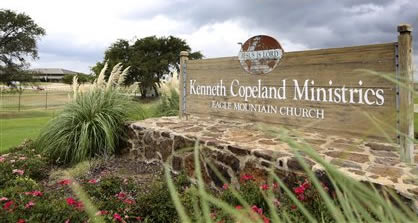[measles-cases-07-12-13]
# of Measles Cases from 1980-2012 by World Health Organization (WHO)
By Rebecca Fiedler
Staff Writer
Noses run, eyes water and fevers burn as an unusual disease hits Tarrant County in Texas.
A recent measles outbreak in Tarrant County made international headlines this week with 16 confirmed cases of the virus, said a public health statement from the Tarrant County website on Thursday. The confirmed cases are no longer infectious, the statement said, but additional reports have been received of rash and fever illnesses.
“Tarrant County Public Health is investigating these reports,” the statement said.
The outbreak’s origins have been traced to a Tarrant County church, Eagle Mountain International Church. A public statement on the church’s website on August 14, the church said the visitor to the church had attended a service after having returned from an overseas trip, during which the visitor contracted the disease.
“Therefore the congregation, staff at Kenneth Copeland Ministries, and the daycare center on property were exposed through that contact,” the statement said.
Tarrant County reported earlier this week in another online public statement that those infected include nine children and seven adults.
“Of these cases, 11 did not have any measles vaccination,” the statement said. “The other cases may have had at least one measles vaccination, but there is no official documentation to verify their status.”
According to the Baylor website, Baylor students are required to have had two doses of the immunization for measles, mumps and rubella (MMR). Lana Darling, a registered nurse and a Baylor Health Services staff nurse, said students may be exempt from this requirement if they have a signed affidavit explaining why they will not receive the vaccination, or if they can provide proof that they have a medical condition that is not compatible with the vaccine for measles. Students who have not been vaccinated are cleared for attendance to Baylor immediately upon receiving the vaccination.
The Centers for Disease Control and Prevention defines measles as a respiratory disease caused by a virus. Measles is a highly contagious disease, the CDC’s website states, and is spread by breathing, coughing and sneezing.
“Measles causes fever, runny nose, cough and a rash all over the body,” the CDC’s website says.
Around one out of 20 children with measles contracts pneumonia, the website says, and about one or two out of 1,000 children with measles die.
“While measles is almost gone from the United States, it still kills nearly 200,000 people each year around the world,” the CDC’s website says. “Measles can also make a pregnant woman have a miscarriage or give birth prematurely.”
Though measles is currently more prominent in other countries, the U.S. and Texas are no strangers to the virus. In the early 1990s there was a re-occurrence of measles in Texas, and at Baylor, said Kelly Craine, the public information officer for Waco McLennan County Public Health District. The CDC also reported on its website that in 1983 Baylor had an outbreak of 80 confirmed cases of measles brought to campus from students who had traveled abroad.
“A part of that was, people only received one vaccination, so now you get two doses of the vaccine,” she said.
Craine added it’s easy to bring measles back to the U.S. on a plane if an individual has not been vaccinated. Measles shots are administered when a person is 1-year-old, and then a booster dose when the person reaches age 4. Measles vaccines are approved for adults, so anyone needing the second booster may receive it, Craine said.
“It’s very possible at any point that any disease could pop up, so you always have to remain vigilant,” Craine said, recommending that everyone keep up to date with their vaccinations.
Waco has not encountered any reports of measles during the time of the Tarrant County outbreak, Craine said. Waco hasn’t had any reported cases of measles since the 1990s, she added. For now, the cases are isolated in the Tarrant County area.
“What we’ve done is we’ve provided information for all of the county schools, school districts, daycare centers, and of course our local seditions on what is going on and signs and symptoms, and things like that, so that they can at least be aware of what’s going on,” Craine said.
Craine also said those wishing to be vaccinated against measles may receive vaccinations from the McLennan County Public Health District.
Providence Health Center in Waco, in response to the outbreak in Tarrant County, has increased surveillance for measles, said Katherine Weaver, infection prevention officer at Providence Health Center.
“We’re just monitoring those patients that come in through the emergency room for any measle-type symptoms,” Weaver said.
Weaver said Providence Health Center offers measles vaccinations.
Levin said that despite measles’ lack of presence in the U.S., complacency to the disease isn’t wise.
“Hypothetically, if non-vaccination were to become the norm and population-wide immunity were to completely disappear, there would be millions of deaths throughout the world on an annual basis, just like there used to be, plus many times that number in terrible, long-term problems,” Levin said. “In a country like the U.S., where a few generations have not had to deal with such acute suffering, it’s easy to become complacent and presume that this isn’t a big deal.”
Levin said in his email that students who have received the vaccine don’t need to be afraid of contracting measles.
“As for whether one should be concerned, I think we all have a responsibility to be informed about things that are happening in our world,” he added.
Updates on the outbreak can be found at the Tarrant County website, www.tarrantcounty.com.






